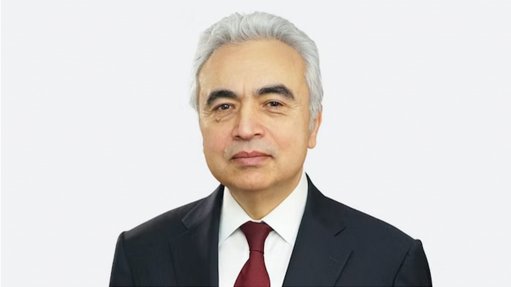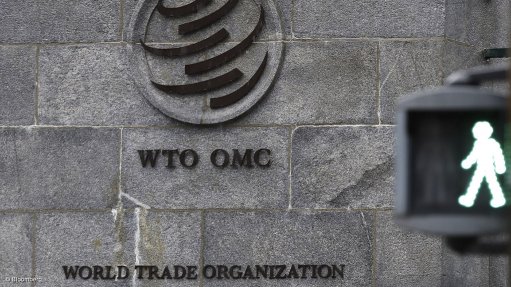Our underpaid educators
That teachers are an important cog of any society is not debatable. They give children hope, set them up for success as citizens of the world and inspire in them a drive to do well and succeed in life.
But do they get a just recompense for their efforts? Not so, if the frequent strike action by our teachers is anything to go by. I better get the terminology right: they are no longer teachers, having adopted the newfangled nomenclature of educators. I haven’t figured out the difference between the two. If you know, please balance me, as the young ones would say.
To be fair to them, South African educators haven’t demonstrated against one grievance or the other in a while. The last time I recall them toyi-toying was in October 2020, when the South African Democratic Teachers Union joined its mother body, the Confederation of South African Trade Unions, in a strike against corruption in high places, gender-based violence, retrenchments and the dishonouring of collective bargaining pacts.
But, like the rest of Mzansi’s workforce, our educators have a high propensity for withdrawing their services whenever disagreements with their employer – that is, the South African government – arise. Indeed, a study published in 2020 revealed that 137 712 workers across all sectors had engaged in 165 industrial disputes in 2018, with the main trigger being dissatisfaction with wages and salaries, bonuses and other compensation benefits.
Educator strikes are not a frequent phenomenon in South Africa only. A few have taken place in Africa since the beginning of the year, indicating that members of this noble profession on the continent do not receive satisfactory remuneration.
As early as January, Zimbabwean educators vowed that they would embark on a work boycott to force their country’s government to improve their working conditions and increase their salaries. They made good on their threat when schools eventually opened for the first term in mid-February, following a Covid-19-induced delay. According to trade union officials, Zimbabwean teachers earn $100 a month; these are greenbacks, not the country’s own dollars. The rand equivalent at the current exchange rate is about R1 500.
Also in February, Cameroonian educators took to the streets, disgruntled with the authorities’ failure to pay huge salary arrears. In the Central African country, an educator is assigned to a school upon graduating and is paid only two-thirds of his or her salary until he or she is integrated into the civil service, a process that may take several months, if not years. While President Paul Biya ordered the release of funds to pay the educators on March 7, the striking educators are sticking to their guns, insisting that the money is not enough.
In Cameroon’s western neighbour, the Nigeria Union of Teachers (NUT) called an indefinite strike by primary and high school educators in Akwa Ibom state on March 15 over a plethora of grievances. Poor pay was one of them. The industrial action ended a week later, after the state government had given in to the NUT’s demands.
In Sudan, as if the political upheaval plaguing the country is not enough, the country’s 350 000-odd educators embarked on a nationwide strike in early March in a bid to force government to pay them better salaries. The industrial action was ongoing at the time of writing.
Meanwhile, in Morocco, educators have been toyi-toying since March 23, clamouring for permanent contracts for their colleagues who are employed on a temporary basis, as well as for better working conditions. They are also protesting against the rising cost of living. The Moroccan authorities have been brutally repressing the protests under the guise of a state of emergency proclaimed in 2020 to counter the Covid-19 pandemic.
Our educators deserve better.
Comments
Announcements
What's On
Subscribe to improve your user experience...
Option 1 (equivalent of R125 a month):
Receive a weekly copy of Creamer Media's Engineering News & Mining Weekly magazine
(print copy for those in South Africa and e-magazine for those outside of South Africa)
Receive daily email newsletters
Access to full search results
Access archive of magazine back copies
Access to Projects in Progress
Access to ONE Research Report of your choice in PDF format
Option 2 (equivalent of R375 a month):
All benefits from Option 1
PLUS
Access to Creamer Media's Research Channel Africa for ALL Research Reports, in PDF format, on various industrial and mining sectors
including Electricity; Water; Energy Transition; Hydrogen; Roads, Rail and Ports; Coal; Gold; Platinum; Battery Metals; etc.
Already a subscriber?
Forgotten your password?
Receive weekly copy of Creamer Media's Engineering News & Mining Weekly magazine (print copy for those in South Africa and e-magazine for those outside of South Africa)
➕
Recieve daily email newsletters
➕
Access to full search results
➕
Access archive of magazine back copies
➕
Access to Projects in Progress
➕
Access to ONE Research Report of your choice in PDF format
RESEARCH CHANNEL AFRICA
R4500 (equivalent of R375 a month)
SUBSCRIBEAll benefits from Option 1
➕
Access to Creamer Media's Research Channel Africa for ALL Research Reports on various industrial and mining sectors, in PDF format, including on:
Electricity
➕
Water
➕
Energy Transition
➕
Hydrogen
➕
Roads, Rail and Ports
➕
Coal
➕
Gold
➕
Platinum
➕
Battery Metals
➕
etc.
Receive all benefits from Option 1 or Option 2 delivered to numerous people at your company
➕
Multiple User names and Passwords for simultaneous log-ins
➕
Intranet integration access to all in your organisation


















